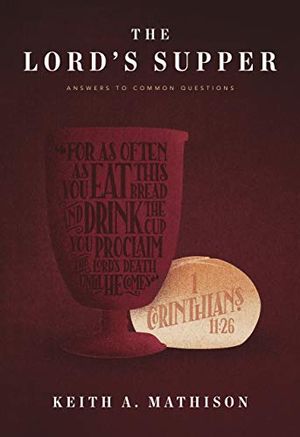The book accomplishes exactly what it says on the cover. Although short, it is by no means shallow. Its chapters are punchy yet weighty, and the style of writing is both accessible and engaging. Written from a Reformed Presbyterian position, the views it expresses will be shared by all confessional Christians.
Mathison deals persuasively with the debate regarding whether the words with which Jesus instituted the supper are figurative or literal. He argues decisively for their symbolic meaning by appealing to Jesus’s words in context and with reference to their Passover associations.
He makes a strong case for the use of wine as opposed to grape juice. In doing so he doesn’t really engage with some of the best arguments and concerns of grape juice advocates. Though he acknowledges that biblical wine was different in use and substance from modern wine, he doesn’t tackle some of the questions this fact raises in terms of contextual application.
The strongest chapter contends for weekly observance. Since the Lord’s supper is a means of grace, it asks, ‘why would we want to observe a fast regarding a meal provided specifically for our spiritual nourishment?’ (p.73).
To those who say that frequent observance would undermine its significance, Mathison points out they do not apply that same reasoning to weekly preaching and prayer — both also ordained by our Lord.
This book could be used to structure a thematic bible study series on the Lord’s supper. I was especially struck afresh by the link between the Lord’s supper and the Passover, and was encouraged by some of the lovely applications which are brought out from this.
Tom Allen
Belvedere






